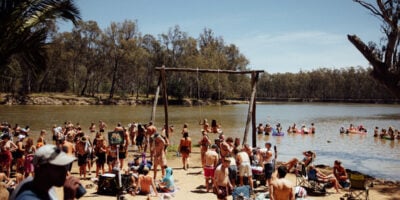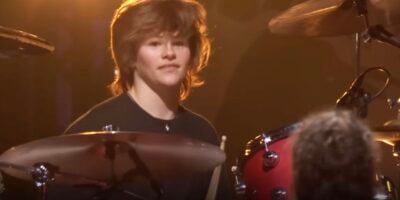Poems, puns, photographs; these are just some of the inspiration for those Australian band names which still sound pretty wild after all these years.
Can’t agree on a name when you plug in together at your first rehearsals?
Do what Sydney band Def FX did and jot down all the ideas on separate pieces of paper, fling them in the air, and grab the first two which return to Mother Earth.
A = Amity Affliction
Metalcore merchants Amity Affliction, who met at high school in Gympie, Queensland were devastated when a close friend died in a car accident aged 17.
Amity symbolised their friendship, and Affliction the anguish of their loss.
B = Black Eyed Susans
When guitarist and singer Rob Snarski and bassist-singer Phil Kakulas formed the outfit Black Eyed Susans in Perth in 1989, they were drawn to the British poem of that name by John Gay, who was inspired by the black eye in the middle of the flower.
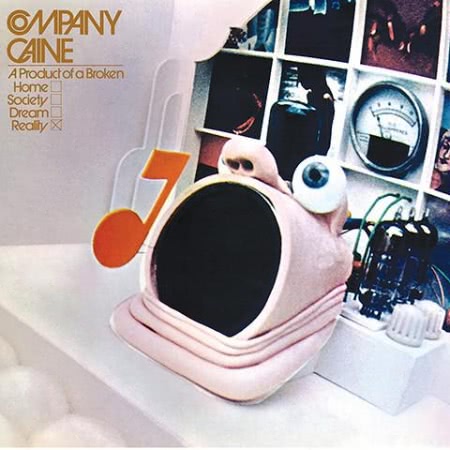
C = Company Caine
Highly inventive Melbourne progressive band from the early ’70s, Company Caine demanded that promoters and venues spell out their Company Caine name in its entirety on posters and other promo material.
That’s because they didn’t want people (read: cops) to catch on that the name was a clever pun on Co. Caine.
Led by idiosyncratic poet/ singer Gulliver Smith who lived in the mythical land of Slatzilvania, their album A Product Of A Broken Reality was suitably futuristic.
They got a single banned from Sydney radio for lines about punching pussycats and cooked up a number of rock operas with titles as A Stone Of Class Distinction and What The Fuck is Happening On Planet Earth?
D = Dead Can Dance
Brendan Perry and Lisa Gerrard met in Melbourne in 1980 and promptly high-tailed it to the UK where they were signed by cult arty label 4AD and became suitably cult arty heroes.
And being suitably cult arty heroes, they never let on what the name was about.
Instead, they explained it on the cover art of their debut album.
It was a New Guinea tribal mask that was once a living part of a tree but now dead, but considered with having a life force of its own by those who viewed it. Or something.
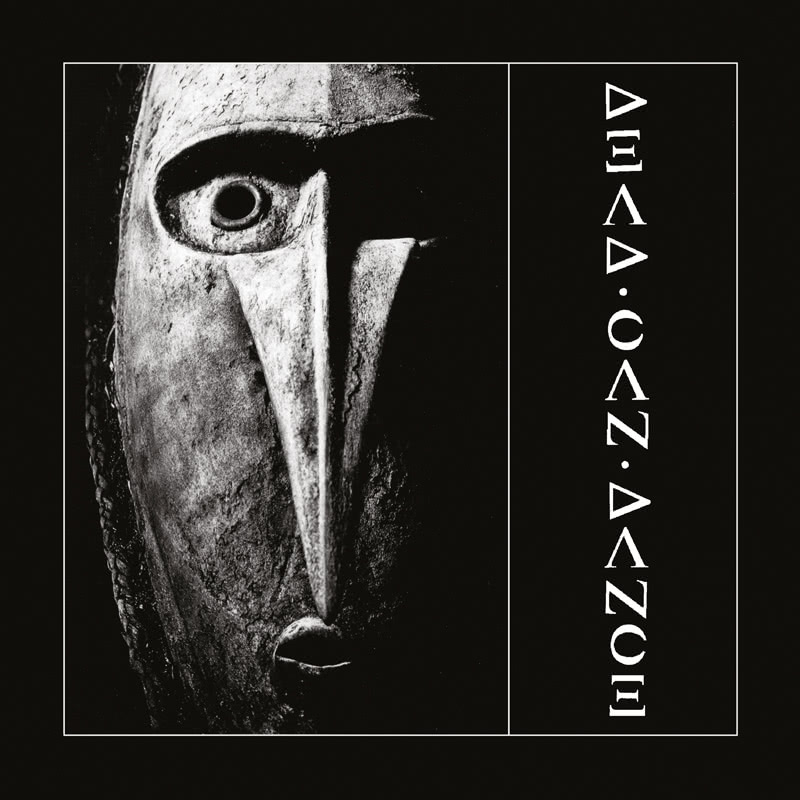
These days Gerrard lives in the Victorian countryside and collects awards for movie scores like The Gladiator, Ali, Whale Rider, and 2: 22.
E = Exploding White Mice
New York punkies The Ramones flicked their handle from Paul McCartney’s early stage name Paul Ramone.
So it’s not surprising that this bunch of 1980s Adelaide punkoids Exploding White Mice would themselves want to express their deep love for The Ramones.
This was through a scene in Allan Arkush’s 1979 film Rock ‘n’ Roll High School where a lab mouse explodes when Ramones music is cranked up in its presence.
Rock and Roll High School – Mouse Scene:

The Ramones themselves make a cameo in the movie, turning up at the school (“do your parents know you’re Ramones?” hisses the principal) and help the students burn it down.
F = Frente
‘80s Melbourne pop band Frente, led by Angie Hart, took to a Spanish dictionary and found the word for ‘forehead’ and ‘front’.
G = Grinspoon
Dr. Lester Grinspoon was an associate professor emeritus of psychiatry at Harvard Medical School,
In 1967 he started studying the effects of marijuana to point out its dangers.
But he did a U-turn and began calling for legalising it for medicinal purposes.
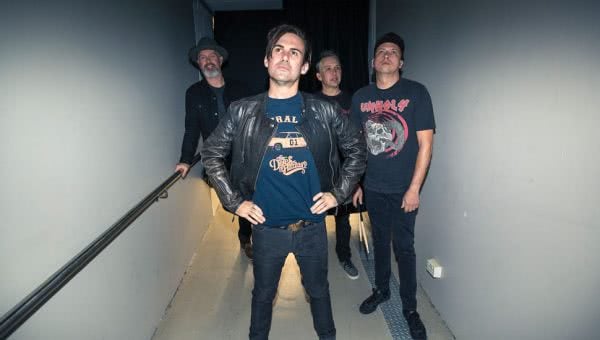
H = Hilltop Hoods
A lot of famous people went to Blackwood High School where Suffa and Pressure met in 1987.
They included future education minister Adam Cooney, University of Adelaide vice chancellor Prof Peter Rathje, MP Chloe Fox, netballer Bianca Reddy and footballer Ben Rutten.
How many of them wore a Cosby sweater?
Check out ‘Cosby Sweater’ by Hilltop Hoods:

The school is in the suburb of Eden Hills, known as The Hilltop by locals.
The name was bestowed on them by MC Flak of Cross Bred Mongrels.
I = I Killed The Prom Queen
First the Adelaide metalcore outfit (formed 2001) were The Rubiks Equation, and then briefly Child Left Burning.
They went for something anarchist which alas helped them get booted off as headliners of the 2019 Unified Gathering festival when sexist comments made by the singer three years earlier mysteriously surfaced.
J = Jagwar Ma
Jono Ma, one half of the psychedelic dance duo told The Line Of Best Fit: “I had done a remix for an Aus act called The Bumblebeez, and a friend of ours – Gus – was releasing it on his label.
“I’d been doing things under the moniker Jaguar Ma and he flipped it to Jagwar.
“We just liked the randomness of the name and it stuck when Gab (Gabriel Winterfield) and I formed the actual band.”
K = Kahvas Jute
Hey Jute! “No it doesn’t mean anything,” repeatedly insisted Dennis Wilson, the guitar hero who put together Kahvas Jute who roared out of Sydney in mid-1970.
Check out ‘Parade Of Fools’ by Kahvas Jute:

Also in the ranks were future guitar hero Tim Gaze (then 16) and bassist Bob Daisley who would become a long time band member and collaborator of Ozzy Osbourne’s.
Theirs was a heady and extirpating heavy rock, prog, psychedelia, blues, country and folk rock which got them a gig doing the soundtrack for an underground surf movie.
Unlike a lot of Sydney bands of that era whose names seemed steeped in spiritually blessed goals (Tully, Band of Light), our heroes opened an encyclopaedia, tapped a word which was the Turkish word for cop and modified it.
L = Lubricated Goat
When mercurial multi-instrumentalist Stu Spasm decided to play a ferocious mid-’80s pre-grunge music “to do things with the guitar unrelated to the blues” as squeezed through The Stooges and The Birthday Party, this led to some of the most confrontational gigs played in Sydney.
Check out ‘In The Raw’ by Lubricated Goat:

Their stratagem included a 28-minute slab of Beefheartian swamp blues ‘Play The Devil’s Music’ and playing nude in November 1988 on late night ABC-TV show Blam Blam Blam wearing only their instruments, their scowls and their shoes.
For four-a-half minutes, they moaned and mimed and swayed, while the host – a very young Andrew Denton – clicked his dial onto “bemused” as Spasm in devil’s horns cradled his guitar and, umm, occasionally and accidentally flashed the family jewels.
Next morning saw the usual talkback radio splutters of “do we have to fling this filth at our kids” and “is this what we pay the ABC for?”
Lubricated Goat was a brand of condom.
It may have – or may have not, we’re just winging this one – come from the story of an Egyptian emperor who had a curse which infected his sperm with scorpions and snakes.
To protect his sexual partner from these animals, he used a goat’s bladder as a female condom.
A tale like that wouldn’t be out of place in the band’s songbook, really.
M = Machine Translations
Canberra-hailed multi-instrumentalist and producer Greg James Walker started a solo project in 1985.
It was cut in a shed in his garden, so, eureka, the project was called Shed Method. He issued a cassette album called Machine Translations. When the project expanded into a band, what better way than to call it after the album.
N = Not Drowning, Waving

Classically-trained David Bridie and John Phillip formed the band in Melbourne in 1984 and used a number of folk-rock instruments best described as pastoral.
The name came from British poet Stevie Smith’s 1957 three stanza poem Not Waving But Drowning.
Bridie was introduced to it by a friend in Glasgow and drawn to its “lyrical quality and a slight ‘surviving against the odds’ connotation.”
The band’s more devoted fans would suggest that the poem about the dead man and the narrator tends to unravel more meanings with each reading – not unlike the band’s atmospheric music.
O = Ol’55
In the mid-‘70s, Sydney-based music journalist Glenn A. Baker decided to create a concept band and see how far he could take it.
He found a 1950s cover band called Fanis and gave them a complete overhaul on the rack. New look, new nicknames like Rockpile and Meatballs, new repertoire.
He brought in as a flamboyant frontman, accountant Peter Brien whom he christened Frankie J. Holden. The Ol’ 55 name was from the 1973 Tom Waits’ song which The Eagles covered on their first album.
The song was part nostalgia for an innocent time and part- ode to the rocket-styled gas-guzzling Oldsmobile model from that era.
The concept worked: they were a huge live drawcard, got a record deal in three months, and their first album Take It Greasy went triple Platinum.
P = Proton Energy Pills
The Wollongong punk rockers from the mid-1980s derived their name from American cartoon series Roger Ramjet.
Those Proton Energy Bills gave Rog his super-strength.
Q = QED
After Jenny Morris ventured over the Tasman to Sydney with The Crocodiles in February 1981, she formed a new band with one time Air Supply bassist Rex Goh.
QED comes from the Latin phrase “quod erat demonstrandum”, or “what was to be shown”.
Or, in simpleton-speak, it’s what you yelped, “Goddamn, I have proven it” after a mathematical or philosophical argument.
Their first single, through EMI, was ‘Everywhere I Go’ which after taking four months to get on radio, finally went Top 20.
Check out ‘Everywhere I Go’ by QED:

Their sole album in 1984 failed to chart and they slammed the shutters down the year after.
R = Regurgitator

Like a scene from a black and white fog-shrouded war-time adultery romance movies, the story goes that Quan Yeomans, Ben Ely and Martin Lee met on a bus in inner Brisbane in 1993.
They all had their bands, but like all good affairs, started this venture as a part-time oh-just-a-quick-one thing.
The word Regurgitator was about vomiting of all the sounds inside them.
The spewing was helped along with commercially successful experiments like recording in a plastic bubble on a Melbourne street for a Channel [V] reality series, a studio in Bangkok called Tu Plang (jukebox), a Brisbane warehouse dubbed The Dirty Room and in Rio de Janeiro, Brazil.
S = Skunkhour
The Sydney band, when formed in 1991, called themselves Skunk to denote their music was a mix of ska and funk.
Two years later when Larkin brothers, Aya and Del, joined on front line duties, a change of moniker was considered appropriate.
It was extended to Skunkhour after a 1958 poem of the same name by American Robert Lowell.
T = Taman Shud
Taman Shud came out of Newcastle touting a mix of psychedelic, progressive and surf rock.
Their early names were dullsville – Four Strangers, The Strangers and The Sunsets. But 1967 brought with much LSD, spirituality and Eastern philosophies.
Singer Lindsay Bjerre delved into the 11th century Persian poetry collection, The Rubáiyát of Omar. Its final line was tamám shud, translated as “ended”, finished” or “the very end”.
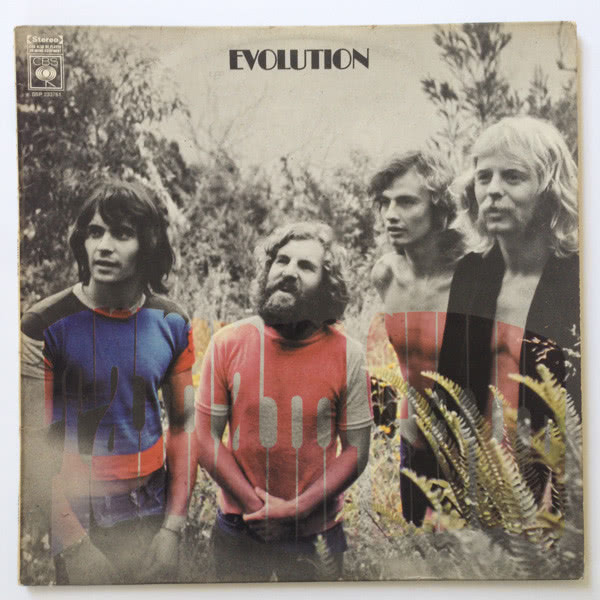
Their first album Evolution (1969) was recorded after film maker Paul Witzig thought their music appropriate for his new movie.
He set the band up in front of a screen, and for two-and-a-half hours they improvised their music as the surf footage splashed on behind them, and an album was born.
The second album, from 1970, was titled Goolutionites And The Real People. It was a time of magic mushrooms, tie-dye trousers and muddy festival sites. The band were not the first in Australia to use the name.
In 1948 there was the unsolved Tamám Shud case where an unidentified man was found on the Somerton Park beach, just south of Adelaide, with a copy of the phrase torn out of the Persian poetry book in his trouser pocket.
U = Urban Guerrillas
Part punk and part mod, Ken Stewart was thinking of what to call his new band in the ‘80s, inspired by the revolutionary thoughts of John Lennon and Bob Marley.
“I was watching the evening news about an IRA bombing of a quiet shopping centre, and they used the name on them.
“I got to thinking that an urban guerrilla was like the resistance groups in World War II, a small band using unconventional tactics on the enemy.”
Urban Guerrillas moved to Sydney and played every political cause – nuclear threats, First Nation rights, peace, racism, refugees, the environment, even impromptu fund raisers, at Sydney airport when Ansett Airlines collapsed leaving 6,000 workers stranded, and on Cockatoo Island when its dock workers lost their jobs.
Stewart says, “The name is more powerful than ever before, because songs written 20, 30, years ago like ‘Here Come The Americans’ still resonate.”
V = The Vampire Lovers
The Vampire Lovers are the early ’80s Brisbane anarchist punk band who took pride in “looking different” just to get a response from people in the street. They took their name from the 1970 British gothic vampire lesbian Hammer Horror movie, of the same name.
W = Weddings Parties Anything
It’s the fade-out line in The Clash’s ‘Revolution Rock’, in which Joe Strummer sends up the band – then regarded as the most important in the world at the time – to say they were rebels but willing to play anywhere for money.
Mick Thomas, the articulate leader of the Melbourne folk-punk band was certainly passionate about The Clash and what they stood for.
But he’d heard the “weddings parties” line before as a child – as an affectionate quip regularly by Bert Newton on contestants on TV’s variety show New Faces.
When the Weddings got to England, the British got the reference right away.
But it went over the heads of their US record company who wanted it changed to WPA – which the band refused because it wouldn’t have meant anything to their audiences.
X = X
Ian Rilen was in Rose Tattoo in the mid ’70s, at a time when they were perpetuating some of the most brutal and relentless sonic assaults on their audiences.
So when he left saying he wanted to do something more ferocious, you knew something extraordinary was coming.
To Rilen, the name X summed up what this highly charged freight train was about – simple and primal, with two red lines slapped across each other on posters that could be seen from afar.
“We do this kind of music better than anyone else…and worse than anyone else,” Rilen would quip.
Check out ‘Degenerate Boy’ by X:

Y = Yothu Yindi
It meant ”mother and child” in Yolngu, and underlines the belief that the relationship between a mother and child results in a good society where caring about family, clan and society is reciprocal.
The mother and child imagery also evokes the imagery of the “two rivers flowing side by side”, as its founder Mr. Yunupingu would say to denote black and white Australia.
Yothu Yindi were a multi-racial outfit and ‘Treaty’ was the unofficial anthem of Australia’s reconciliation movement.
The mother and child phrase differs from country to country.
In Jamaica, for instance, a Mother and Child Reunion is a dish of chicken and egg.
Z = Zoot
A bunch of migrant kids who’d seen Brit beat first and seen how important image was (unlike their more dorky skippy colleagues) started playing around Adelaide in 1965 as Down The Line.
One day in 1967, a man called Bernard Neeson who wanted to manage them, advised them to change to “something short and punchy like Zoot.”
The name alluded to the Zoot suit, a 1940s fashion statement particularly favoured by African Americans with wide legs, high waist and pegged trousers and a long coat with wide lapels and wide padded shoulders.
There was also a UK R&B singer called Zoot Money who meant nothing in Australia but which immigrant kids would know about because he was big in their neck of the woods.
The band took the name but didn’t sign management with him.
Bernard went on to change his name to Doc and went over the top when fronting The Angels.
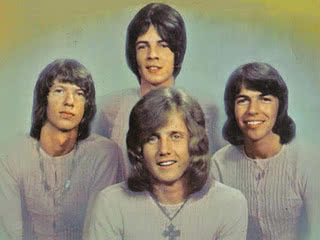
The freshly dubbed Zoot moved to Melbourne where they became huge live drawcard.
Musically they were good – guitarist Roger Hicks, for instance, was classically trained and composed and performed the iconic acoustic riff opening to Russell Morris’ ‘The Real Thing’.
A Think Pink campaign where they wore resplendent pink backfired, leaving them with a bubblegum image.
In 1970, they tried to destroy that with a heavy rock version of The Beatles’ ‘Eleanor Rigby’. It topped the Australian charts but failed to get them a US deal and they pulled up stumps in May 1971.
Within a few years two of them broke America. Bassist Beeb Birtles with the hugely successful Little River Band, and guitarist Rick Springfield as a heartthrob singer and actor

































